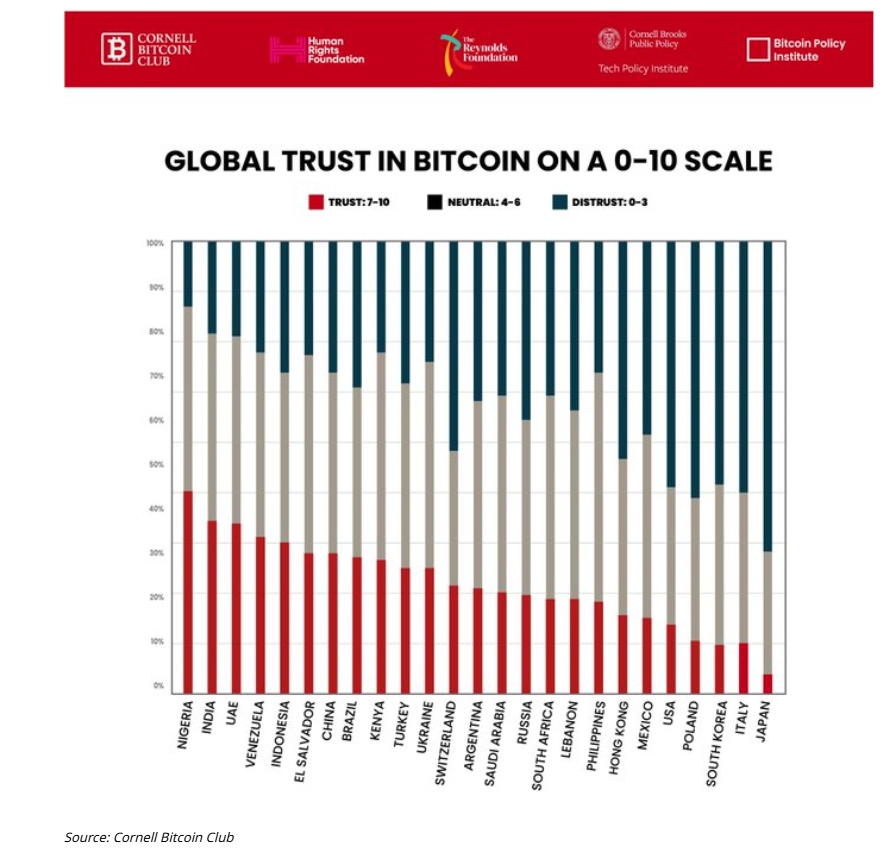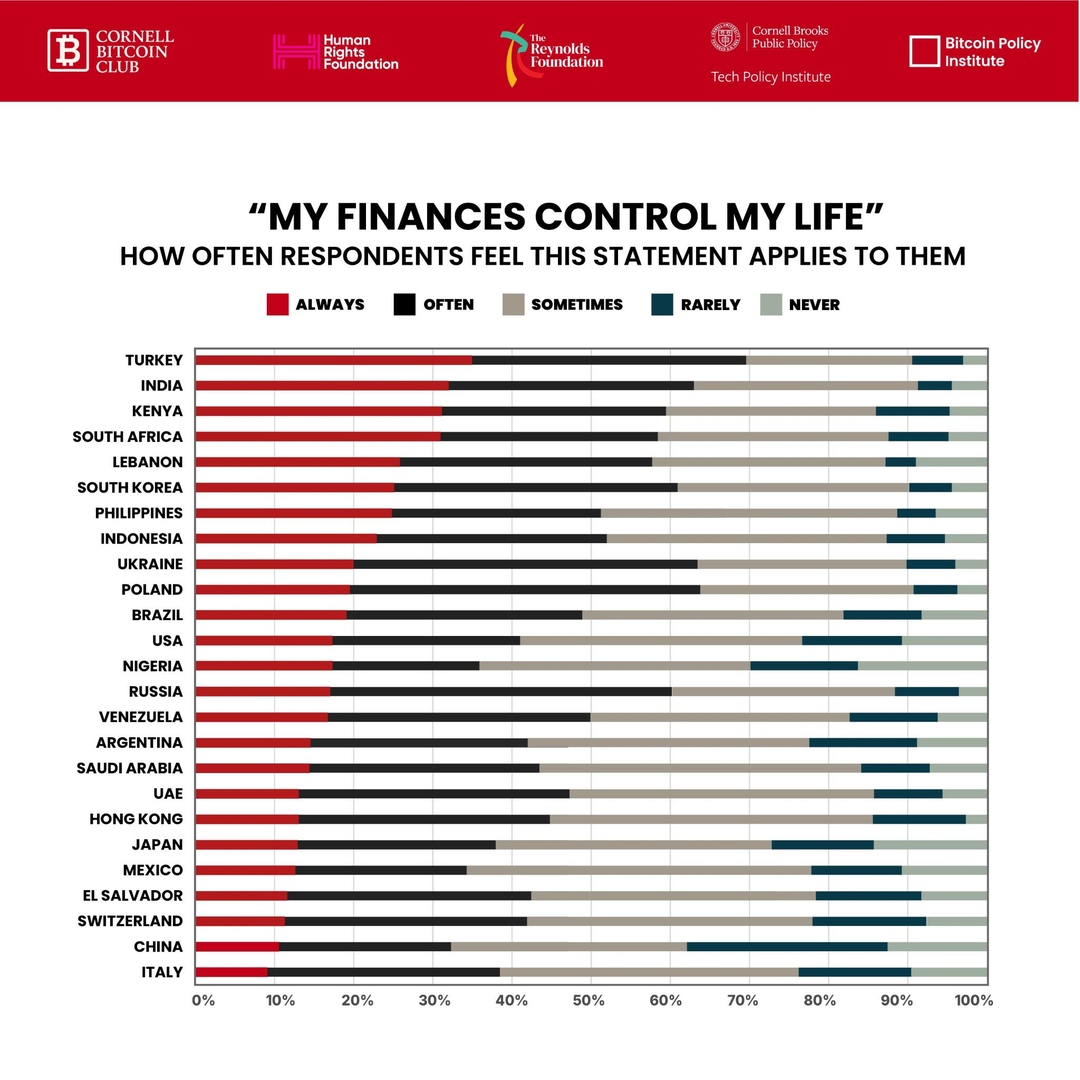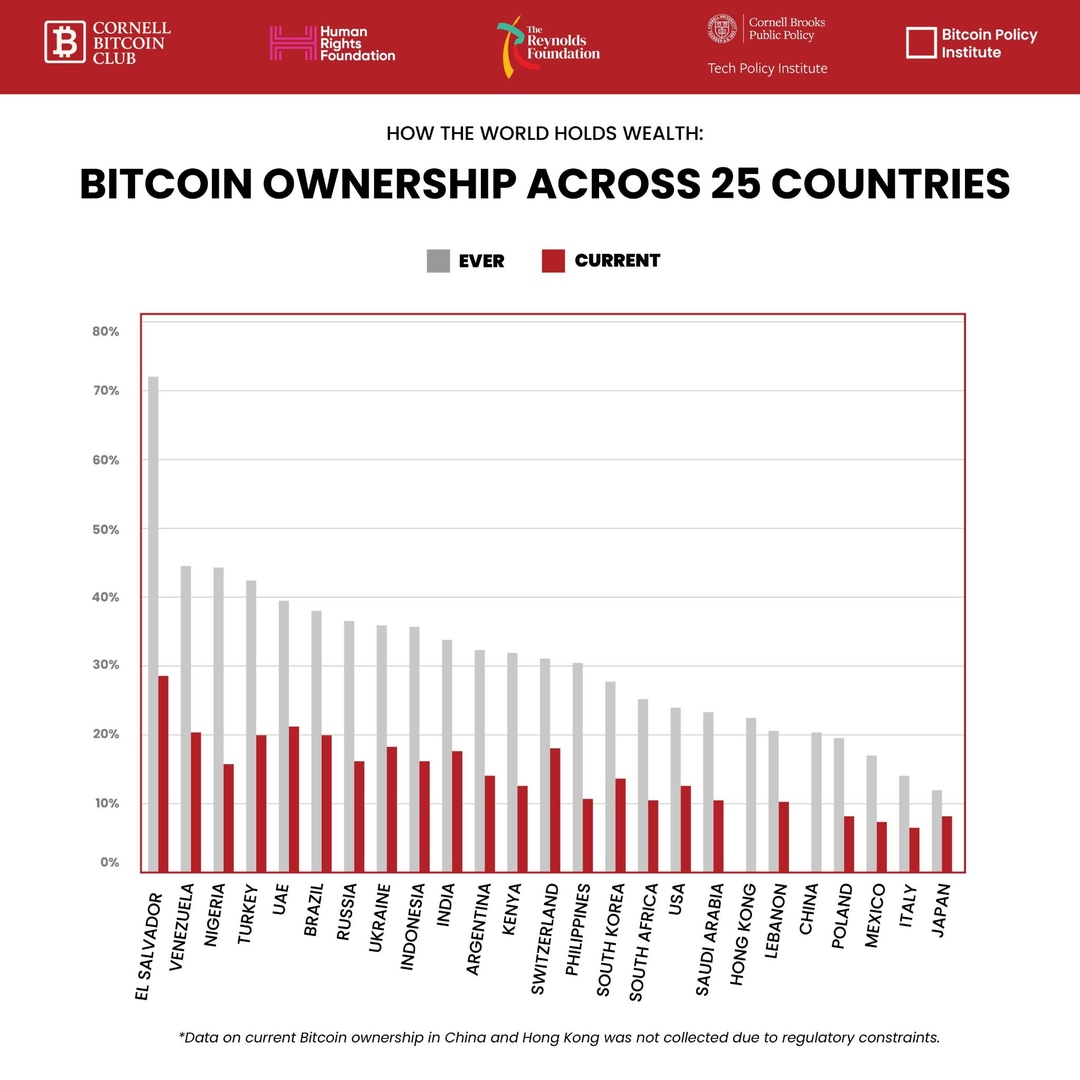Trust Issues and Livelihood Challenges Could Drive Bitcoin Adoption

In recent years, ordinary people have faced waves of economic uncertainty, especially in the aftermath of the COVID-19 pandemic. For many, even day-to-day living has become more difficult, while trust in banks, financial institutions, and governments has fallen to historic lows. This environment has created fertile ground for alternatives — with Bitcoin often emerging as one of the most prominent.
According to an international survey conducted by the Cornell University Bitcoin Club, cryptocurrencies — particularly Bitcoin — tend to gain traction in countries where people experience the highest levels of financial stress. The key question is whether financial anxiety itself is driving interest in Bitcoin, or whether broader uncertainty is pushing people to seek new anchors in the modern economy.
Where Financial Stress Is High, Bitcoin Thrives
The research shows a clear pattern: in countries where citizens feel their lives are heavily dictated by financial pressures — such as Turkey, India, Kenya, and South Africa — Bitcoin usage and acceptance are significantly higher. In these regions, Bitcoin often goes beyond being a speculative investment. Instead, it functions as a financial lifeline, helping people protect their savings against hyperinflation, currency volatility, or economic instability. As the study concludes:
“Where financial stress is acute, Bitcoin is not just an alternative investment, but a potential tool for survival.”
By contrast, in wealthier and more stable economies — such as Switzerland, Italy, or China — Bitcoin adoption is far lower, and financial anxiety is less pronounced.
An Alternative Born from Distrust and Uncertainty
On a global level, trust in Bitcoin remains lukewarm. Across 25 surveyed countries, the average confidence score was just 4.67 on a 0–10 scale. Nigeria ranked highest in Bitcoin trust, while Japan ranked last. Interestingly, many respondents perceive Bitcoin’s risks as broadly comparable to those of stocks or corporate bonds. At the same time, recurring issues such as fraud, legal uncertainty, and privacy concerns lead to a sense of hesitation — though not outright rejection. As the report notes:
“Uncertainty, rather than skepticism, is the prevailing sentiment.”

Global Trust in Bitcoin by Country: The Scale Reveals Where Confidence Is Highest — and Where Skepticism Prevails.
A particularly striking finding is that in ten countries — including Brazil, Indonesia, Kenya, Lebanon, Nigeria, and Turkey — citizens expressed greater trust in Bitcoin than in their own governments. Meanwhile, in countries such as the United Arab Emirates and Saudi Arabia, trust in state institutions far outweighed confidence in Bitcoin.
Bitcoin as a Modern Safe Haven
These findings suggest that people’s perception of Bitcoin is shaped less by universal global attitudes and more by local economic realities and levels of institutional trust. Its role becomes most pronounced in societies where citizens feel unsupported by traditional systems — allowing Bitcoin to serve as a symbol of hope, independence, and financial protection. In contrast, in countries with stable economies and strong institutions, Bitcoin remains a distant novelty.
The future will reveal whether digital currencies evolve into genuine safe havens or introduce new layers of uncertainty. For now, the global Bitcoin landscape highlights the diverse financial realities and trust dynamics that shape how societies engage with emerging technologies.

